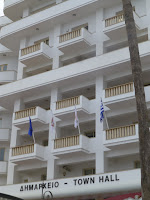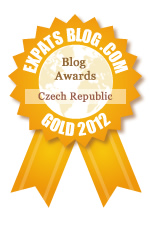 Madrid
Madrid is the capital of
Spain. With 3,2 million residents it is the third-largest city in the
EU after
London and
Berlin. However the greater metro area is home to about 6,5 million people.

Madrid was founded in the 9th century. The Spanish Constitution in 1931 established the city as the state capital. The city was confirmed as the national capital in the 1978 constitution.

The
Puerta del Sol was one of the city wall gates that surrounded the city in the 15th century. Today it is one of the busiest public squares.

In the square is the centre of Spain. The
kilometre cero is baseline for distance in the country.

The
Palacio de Cibeles opened in 1919 as the home of the Spanish postal and telecommunications service. Since 2007 it the seat of the Madrid City Council.

The
Puerta de Alcalá was inaugurated in 1778. As the the first modern post-Roman triumphal arch built in Europe it is older than Paris' Arc de Triomphe or Berlin's Brandenburg Gate.

The
Templo de Debod is an Egyptian temple dating back 2200 years ago. It was devoted to the cults who worshipped the Egyptian gods Amun and Isis.
Egypt donated the temple to Spain in 1968 in gratitude for help with rescuing another temple.

The
Plaza de Villa is the oldest plaza in Madrid and is in the heart of the 16th century district. The
Casa del la Villa is the old town hall.

At the
Plaza de España is the monument to Spanish novelist, poet and playwright Miguel de Cervantes Saavedra. Most of the monument was built from 1925-1930 but it wasn't completed until 1957.

El Retiro is one of the Madrid's largest parks. It belonged to the Spanish Monarchy until the late 19th century when it became a public park. It is home to the Alfonso XII monument.
 Plaza Mayor
Plaza Mayor is another of the city's central squares. The statue of Philip III dates back to 1616 and was moved here in 1848. The square has been used for everything from markets to bullfights. During the Spanish Inquisition many supposed heretics were executed here.

The Royal Palace is the official residence of the Spanish Royal Family but they don't actually live here. It is only used for state ceremonies. The palace was first occupied in 1764. The palace is huge and has 3,418 rooms. By floor area it is the largest royal palace in Europe.

Santa María la Real de La Almudena is Madrid's Catholic cathedral and sits opposite the Royal Palace. Pope John Paul II consecrated it in 1993.

Restaurante Botín is the oldest restaurant in the world. It opened in 1725 and has been operating ever since. The original 18th century firewood oven is still used.
The thing to remember about restaurants in Madrid is that people eat late. Going out for dinner at 10 or 11 pm is pretty normal.
 |
| The Prado Museum |
Madrid has some great museums. I've always wanted to visit the Prado Museum so I got to tick another item off of my bucket list. It is the national museum featuring pre-20th century art with works dating from the 12th century.
 |
| The Reina Sofia Museum |
The Reina Sofia Museum is Spain's national museum of 20th century art. It was inaugurated in 1992 and is mainly dedicated to Spanish art with plenty of works by Pablo Picasso and Salvador Dalí.
During the Spanish Civil War, from 1936-1939, Madrid became the first European city to be bombed by airplanes.
 |
| Guernica |
At Reina Sofia is
Guernica by Pablo Picasso who in 1937 painted what is considered by many people to be one of the most powerful anti-war paintings in history. The mural was in response to the bombing of
Guernica in northern Spain. Spanish Nationalists under General Francisco Franco requested Nazi German and Fascist Italian warplanes to bomb the
Basque village. The experience allowed the Nazi Luftwaffe to perfect its Blitzkrieg strategy during WWII.
I knew that I would enjoy a long weekend in Madrid but I had no idea of just how much. In four days I was barely able to scratch the surface. A return visit is definitely needed. Here's a Rick Steves video I found out on YouTube that gives way more highlights.
 Yesterday was our 7th annual Thanksgiving celebration. After all these years it's about time to just call it Czechsgiving. Hard to believe that it's been seven years since our first Thanksgiving here in Brno.
Yesterday was our 7th annual Thanksgiving celebration. After all these years it's about time to just call it Czechsgiving. Hard to believe that it's been seven years since our first Thanksgiving here in Brno.
 It was a great time getting to enjoy the day with everyone. The guest list seems to increase each year as we have more and more kids joining us.
It was a great time getting to enjoy the day with everyone. The guest list seems to increase each year as we have more and more kids joining us. 




























































